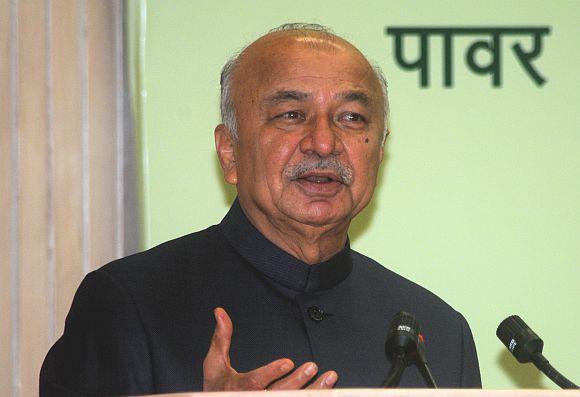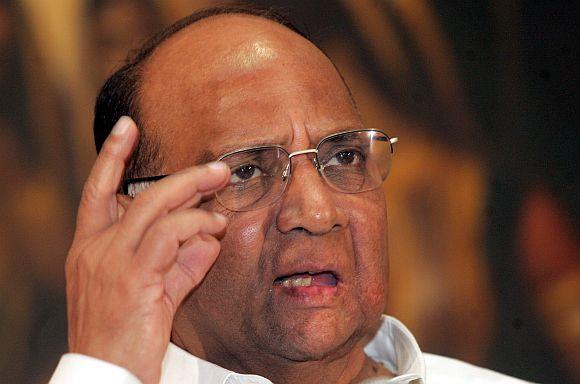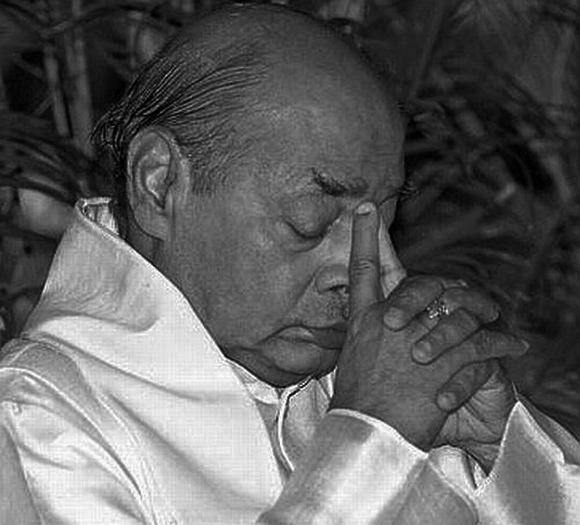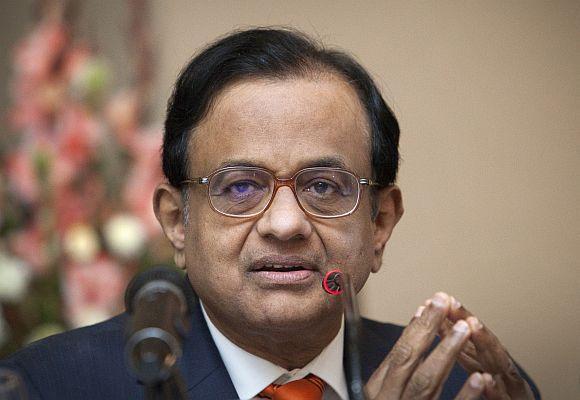
Renu Mittal profiles Sushil Kumar Shinde, his rise from a police sub-inspector to holding many important posts -- governor, chief minister, power minister and finally, home minister.
On the morning of July 30th at 4.30, Congress President Sonia Gandhi called up Home Minister Sushil Kumar Shinde and wanted to know what was being done to resolve the major power crisis in north India with many states in the midst of a power blackout. Shinde, the country's power minister was in Mumbai getting ready to go to Tirupati for a programme.
After the call, he changed his plan and returned to Delhi by the 6.30 am flight. The last two and a half days have seen large parts of the country facing a power crisis and continued blackouts for hours on end.
Even before the power crisis could be resolved, Rashtrapati Bhawan issued a notification appointing Shinde as the new home minister of India, in place of (now) Finance Minister P Chidambaram.
While television channels put out the breaking news 'Shinde rewarded for power crisis in the country', a wag commented, "The law and order problem created by lack of power can now be resolved by Shinde as the home minister."
For the fair, blue-eyed, ever-smiling and ever-genial Dalit leader from Kolhapur in Maharashtra, its been an impressive and upward climb from the days when he was a sub inspector.
...

Part of his beat was the Maharashtra Congress office, and it was here that nationalist Congress Party chief Sharad Pawar had picked him up and asked him to join politics. The story goes that Shinde was the investigating officer in a minor case involving Pawar, who was then the general secretary in the party and that is how the two became close.
He won the 1973 by-election and was made a minister in the Maharashtra government, then headed by V P Naik.
Shinde remained loyal to Pawar and left the Congress with him when he floated his own party in 1978, but after 1986, when Pawar merged his party with the Congress, Shinde remained loyal to the Gandhi family and has never looked back ever since.
Once chief minister of Maharashtra, twice Pradesh Congress Committee president of Maharashtra, longest serving finance minister of the state, presenting 9 budgets, All India Congress Committee general secretary, union minister, governor, Shinde has held innumerable posts having always been promoted as a caste leader by the high command in Delhi, but interestingly never recognised as a caste leader in Maharashtra.
The joke in the Congress is that the party could never use Shinde as a Dalit leader, since he neither looks like a Dalit nor his beliefs, habits, attitude and actions could be identified with Dalit leaders. His own wife is a Kayashtha (same as Bal Thackeray) which is why the Shiv Sena has never attacked him on the grounds that 'he is one of us' and two out of his three daughters are married to upper castes.
His third daughter Praniti is a first term member of legislative Assembly, and unmarried.
...

Known to be a colourful person, he loves the good things in life and always goes for the best quality -- whether it be his clothes, his food or his drink. His shoes are specially handcrafted by the Chinese in either Connaught place or Khan Market in New Delhi, and whenever Shinde travels, there are people in the staff who reach earlier to ensure the arrangements are more than up to the mark.
So much is spoken about his good taste, that former prime minister Rajiv Gandhi visited his farm house in Kolhapur since it had been praised by a lot of people.
Shinde was promoted in national politics and brought to Delhi by former prime minister P V Narasimha Rao who wanted to build him up to use him against Pawar.
He made him an AICC general secretary and while Sitaram Kesri was the treasurer -- it was Shinde who brought in the big bucks for the Congress from Mumbai where he had innumerable financial, business and corporate connections -- particularly in Marwari and Gujarati business houses of Mumbai.
Pawar has serious reservation against his one-time junior's dramatic promotion.
But it was when he became in charge of Uttar Pradesh that Shinde became close to the Gandhi family where he would spend from his own pocket to help the workers from Amethi and Rae Bareli, since these workers were in constant touch with the Gandhi family.
'Loyalty' and 'flexibility' are the two words used to describe Shinde's rise from a sub inspector to the home minister of India. As chief minister, he brought the Congress back to power in Maharashtra, but instead of being sworn in as the chief minister, he was packed off to Andhra Pradesh as the governor, and Vilasrao Deshmukh was made the chief minister.
But to give him credit, he never spoke a word against the decision after which he returned to Delhi as a union cabinet minister. He was also fielded by the party as a vice presidential candidate, knowing he would lose the election, but on the assurance that he would be given a bigger post later.
...

Many in the Congress see him as a future prime minister or President, who wears his loyalty to the Gandhi family on his sleeve.
Known to be pro-industry and pro-business houses, Shinde has been close to business magnate Anil Ambani in the power ministry. He awarded mega power projects but many of them were surrounded by scandals and controversies.
When a power project was awarded to Anil Ambani in Madhya Pradesh, captive coal mines were also given on the assurance that they be used specifically for the power project. Later Ambani decided to divert the coal to other projects and areas which was wrongly cleared and given permission by the power ministry. In retaliation Tata wrote to the minister saying "if this was the case, we would also have applied".
Some reports claim that Shinde has distanced himself from Anil Ambani. These days he is very close to a senior and very powerful Congress leader with whom he built bridges over a period of time.
The government is full of stories about how the prime minister has been deeply unhappy with the performance of Shinde in the power ministry and has wanted to change his portfolios many times, but 10 Janpath has been a major road block in that direction.
The fact that there have been zero power reforms in the ministry, that there has been no movement in the power sector with foreign companies preferring to opt out rather than stay put has been a big impediment in boosting the infrastructure required for bringing in foreign companies to invest in India.
The talk in the government now is that after the tough talking and tough acting P Chidambaram, how will the soft-spoken Shinde who appears incapable of either acting or talking tough manage to step into Chidambaram's shoes?
Surely, he will be one up in making compromises and handling things with political aim, but will it be enough to run home ministry that among many things, also deals with the issue of internal security of India?
...